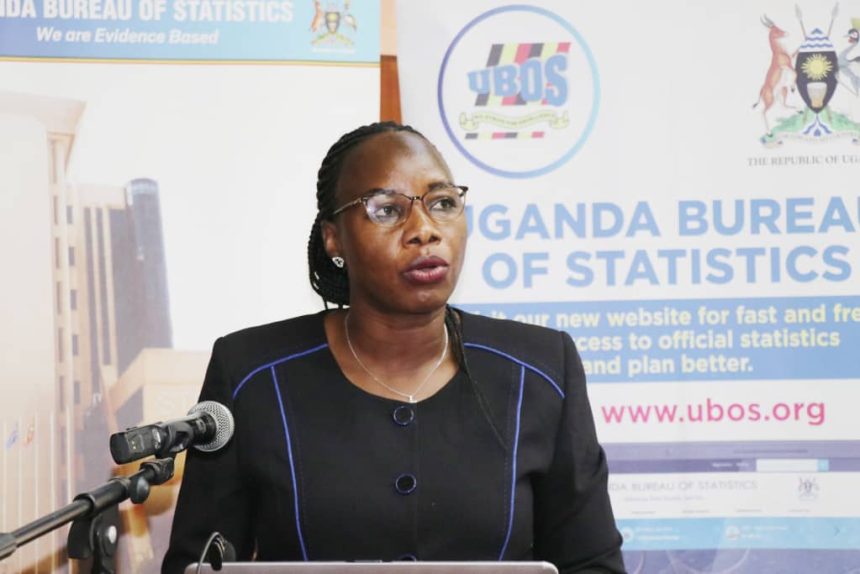During the release of the consumer price indices and inflation report, Alikizi .K.Lubega, Chief statistician at UBOS, attributed the current state of economic affairs to the annual core inflation, which saw a 2.3% increase. This was a notable uptick from 2.0% recorded in November 2023, primarily driven by the service and transport sub-sectors.
Lubega highlighted the general surge in commodity prices as the primary driver behind the annual core inflation rise. The increase was particularly evident in the prices of transport, energy, fuel, and the service sector.
She pointed out, “The price of charcoal across all points has risen, with fuel and utilities remaining stable due to internal and external factors.”

However, Lubega also noted a decrease in the prices of food crops shifting from a 0.3% inflation in November to -3.4% in December. For instance, the price of a kilogram of tomatoes decreased from Ugx shs.2962 in 2022 to Ugx shs.2700 in November 2023 and further to shs2600 in December 2023.
The Annual Inflation as measured by the Consumer Price Index for Uganda for the 12 months to December 2023 is registered at 2.6 percent same rate as registered in the year ended November 2023.

Download Copy For More Details. – Home – National News Express
Contrary to the report, Monica Namono, a trader at Nakasero market, contested the claim about a drop in food prices in December.
She emphasized, “The price of fuel is high, and the taxes are heavy. As a result, we haven’t witnessed a drop in the price of commodities. We now, more than ever, use a lot of money to buy a box of tomatoes, and it has an effect on retail buyers.”
Arua registered the highest geographical inflation for December with a general monthly inflation rate of 0.1%, followed by Jinja central and Kampala.
In Uganda, where a significant portion of income is spent on food, any increase in food prices becomes a major contributor to inflation.
The notable surge in the prices of fuel, energy, and utilities, which form the backbone of production, distribution and consumption, implies an inevitable hike in the prices of food and related items. This in turn affects the affordability of essential basic necessities for the working (moderate earning) class.
The annual residential property inflation for the four quarters up to quarter two of the financial year 2023/24 increased to 7.0%, compared to the 5.7% recorded for the year ending in quarter one of the financial year 2023/24.
Notably, prices for residential properties in Wakiso increased by 3.0%, while a -1.3% decrease was recorded for quarter one.








